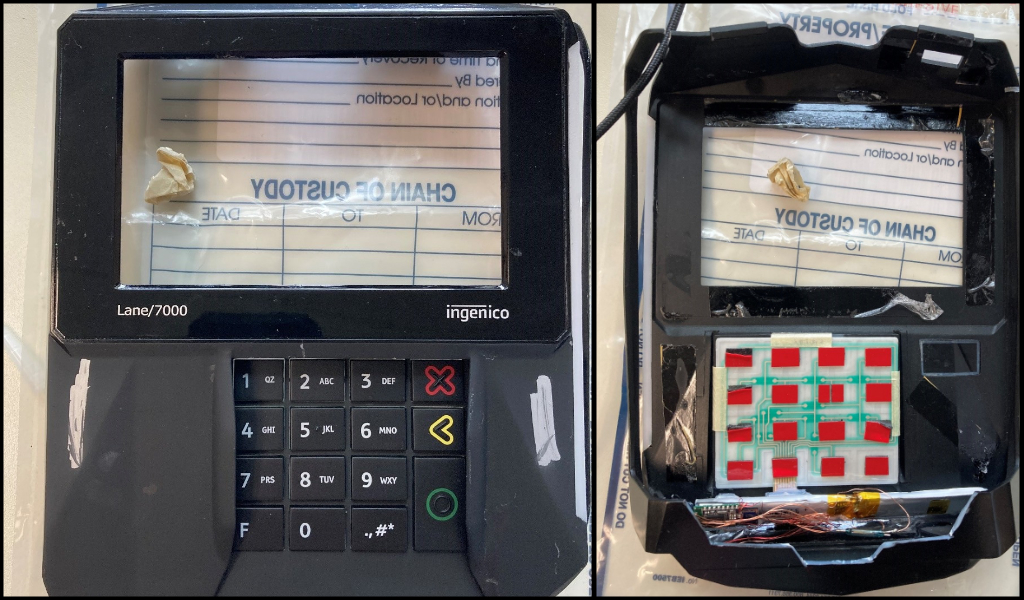Health
Federal Agencies Intensify Crackdown on Welfare and Health-Care Fraud

Widespread fraud in welfare and health-care systems has prompted federal agencies to take significant action against these crimes. Recent investigations revealed that these fraudulent activities cost taxpayers millions. The US Secret Service and the Justice Department are leading efforts to combat this growing issue, which disproportionately affects vulnerable communities.
In a focused operation from September 23 to September 25, 2023, the Secret Service targeted electronic food stamp fraud in the Greater Boston area. Investigators confiscated 17 illegal card skimming devices from various businesses, preventing an estimated fraud loss of $16.7 million to the government and more than $334 million overall to businesses. This crackdown involved a coordinated sweep across 700 businesses, aiming to dismantle illegal payment-card skimming and Electronic Benefit Transfer (EBT) fraud.
According to the Secret Service, there has been a nationwide increase in skimming targeting EBT cards. “EBT fraud targets the nation’s most vulnerable communities,” the agency stated. Monthly deposits into government assistance accounts are intended to help families purchase food and other essential items, making these funds attractive targets for thieves who exploit the system.
Specialized teams of Secret Service analysts collaborated with local and state law enforcement to search for and remove skimming devices from ATMs, gas stations, and points of sale. These illegal devices clone card information when customers swipe or tap their cards for transactions, costing financial institutions and consumers more than $1 billion annually.
During this operation, investigators not only removed the skimming devices but also educated business owners on how to identify potential threats. Consumers were advised to look out for card readers that seem loosely attached or damaged and to use tap-to-pay technology or cards with chip technology whenever possible.
On another front, the Justice Department is intensifying efforts to combat health-care fraud. The recent expansion of its Health Care Fraud Unit’s New England Strike Force into Boston signifies a commitment to tackling fraudulent practices within the health-care system. This initiative aims to hold drug companies, medical-device manufacturers, doctors, and corporate executives accountable for fraudulent activities.
Launched in 2022, the strike force employs a data-driven, multi-agency approach to enhance its investigative capabilities. According to federal officials, this collaborative effort will serve as a “powerful force multiplier,” expediting the detection and prosecution of complex fraud schemes throughout the District of Massachusetts.
Last fiscal year, the US Attorney’s Office recovered more than $450 million in funds obtained through fraudulent means. Massachusetts US Attorney Leah Foley expressed confidence in the new partnership, highlighting the office’s success in combating health-care fraud. “The Office has cracked down on fraud committed by pharmaceutical companies and medical device manufacturers,” Foley stated, “as well as unethical doctors who prioritize greed over patient safety.”
In a notable case earlier this year, Boston-based emergency medicine physician Le Thu pleaded guilty to defrauding Medicare by submitting claims for genetic testing services that were never provided. She allegedly caused third-party laboratories to submit approximately $35.5 million in claims, of which Medicare paid about $25.3 million.
As stated by Ted E. Docks, Special Agent in Charge of the FBI’s Boston Division, “Health-care fraud costs taxpayers tens of billions of dollars every year.” The extensive bureaucracies managing welfare and health-care programs often make them attractive targets for fraud, but the recent initiatives by federal and state agencies reflect a determination to tackle these issues head-on.
The collaborative efforts by the Secret Service and the Justice Department underscore a commitment to safeguarding taxpayer dollars and ensuring that assistance programs serve their intended beneficiaries. As enforcement agencies ramp up their investigations, the hope is to significantly reduce fraud and restore integrity to these vital systems.
-

 Science1 month ago
Science1 month agoNostradamus’ 2026 Predictions: Star Death and Dark Events Loom
-

 Technology2 months ago
Technology2 months agoOpenAI to Implement Age Verification for ChatGPT by December 2025
-

 Technology7 months ago
Technology7 months agoDiscover the Top 10 Calorie Counting Apps of 2025
-

 Health5 months ago
Health5 months agoBella Hadid Shares Health Update After Treatment for Lyme Disease
-

 Health5 months ago
Health5 months agoAnalysts Project Stronger Growth for Apple’s iPhone 17 Lineup
-

 Technology5 months ago
Technology5 months agoElectric Moto Influencer Surronster Arrested in Tijuana
-

 Education5 months ago
Education5 months agoHarvard Secures Court Victory Over Federal Funding Cuts
-

 Health5 months ago
Health5 months agoErin Bates Shares Recovery Update Following Sepsis Complications
-

 Technology7 months ago
Technology7 months agoMeta Initiates $60B AI Data Center Expansion, Starting in Ohio
-

 Technology6 months ago
Technology6 months agoDiscover How to Reverse Image Search Using ChatGPT Effortlessly
-

 Science4 months ago
Science4 months agoStarship V3 Set for 2026 Launch After Successful Final Test of Version 2
-

 Technology7 months ago
Technology7 months agoRecovering a Suspended TikTok Account: A Step-by-Step Guide





















